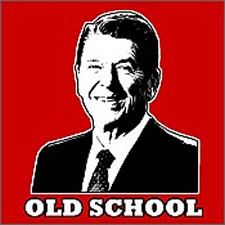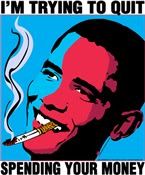 Despite serious misgivings about the possibility of judicial activism on the part of Elena Kagan should she be confirmed to replace retiring Justice John Paul Stevens, it is likely that the outcome of future Supreme Court cases would not be much affected.
Despite serious misgivings about the possibility of judicial activism on the part of Elena Kagan should she be confirmed to replace retiring Justice John Paul Stevens, it is likely that the outcome of future Supreme Court cases would not be much affected.It is not surprising that President Obama would elect someone with a liberal activist mentality to the Supreme Court. Obama and his Democrat congress are perhaps the most activist legislative body since Lyndon Johnson's Presidency in the late 1960's, and look to surpass Johnson's legacy if Obama's agenda continues to roll through the legislature regardless of public sentiment, which has been against Obama for quite a while.
Justice Stevens has become increasingly liberal over the years. As a dubious choice by then President Gerald Ford in 1975, Stevens has often been on the wrong side of Constitutional issues, up to and including one of the last acts of the current court. Justice Stevens wrote the lengthy and seriously flawed dissent to the recent Supreme Court decision that 2nd Amendment Constitutional rights are for everyone in the nation, and cannot be restricted by regional governments. Stevens insists that such rights are to be held collectively, and are not for the individual, as other Constitutional rights are commonly interpreted.
Elena Kagan, based upon her history of siding with liberal causes, up to an including ignoring established Federal law, would likely have agreed with Stevens. Thus, as a replacement for Stevens, her opinion would have still been in the minority, and the 5-4 outcome would not have changed.
When Elena Kagan was the Dean of Harvard Law School, she deliberately ignored the Solomon Amendment, which made it illegal to keep military recruiters off of college campuses. Her personal stance against President Bill Clinton's "Don't ask, Don't tell" policy concerning gays in the military, even though she worked for the Clinton White House when the policy was enacted, came before her adherence to the law. She supported a challenge to the Solomon Amendment, and the U.S. Supreme Court ruled against her opinion. It took the threat of the withholding of Federal funding to Harvard Law School to force Kagan into compliance.
At the same time, there is some question as to what involvement Elena Kagan, as Dean of Harvard Law, has had in the withholding of Barack Obama's Harvard Law transcripts. For some reason, Obama has continued to keep the world in the dark concerning his real achievements at Harvard Law. (His achievements at Columbia are a mystery as well, as his transcripts from that university are also sealed.) Her rise to prominence within the Obama Administration, culminating with her nomination to the Supreme Court, has been the subject of much conversation.
Kagan has also argued before the Supreme Court that the distribution of political pamphlets should be regulated by the Government. Her opinion would guarantee that government would have a hand in maintaining it's own authority, as any dissent could be quashed by government itself. Such an opinion is a serious violation of the First Amendment Constitutional right of free speech.
 Just as when House Speaker Nancy Pelosi demonstrated her blind allegiance to the Obama agenda, when on the eve of the passage of ObamaCare, she stated "you must pass the bill to see what is in it", Kagan's confirmation is likely a forgone conclusion. Considering the current political climate in Washington D.C., with the Democrat majority probably voting "en masse" for the President's pick despite her questionable legal judgment, the confirmation hearings currently going on are likely to amount to much political grandstanding, with no real effect on the actual decision making process.
Just as when House Speaker Nancy Pelosi demonstrated her blind allegiance to the Obama agenda, when on the eve of the passage of ObamaCare, she stated "you must pass the bill to see what is in it", Kagan's confirmation is likely a forgone conclusion. Considering the current political climate in Washington D.C., with the Democrat majority probably voting "en masse" for the President's pick despite her questionable legal judgment, the confirmation hearings currently going on are likely to amount to much political grandstanding, with no real effect on the actual decision making process.
















No comments:
Post a Comment